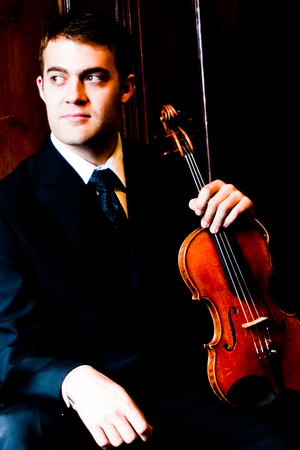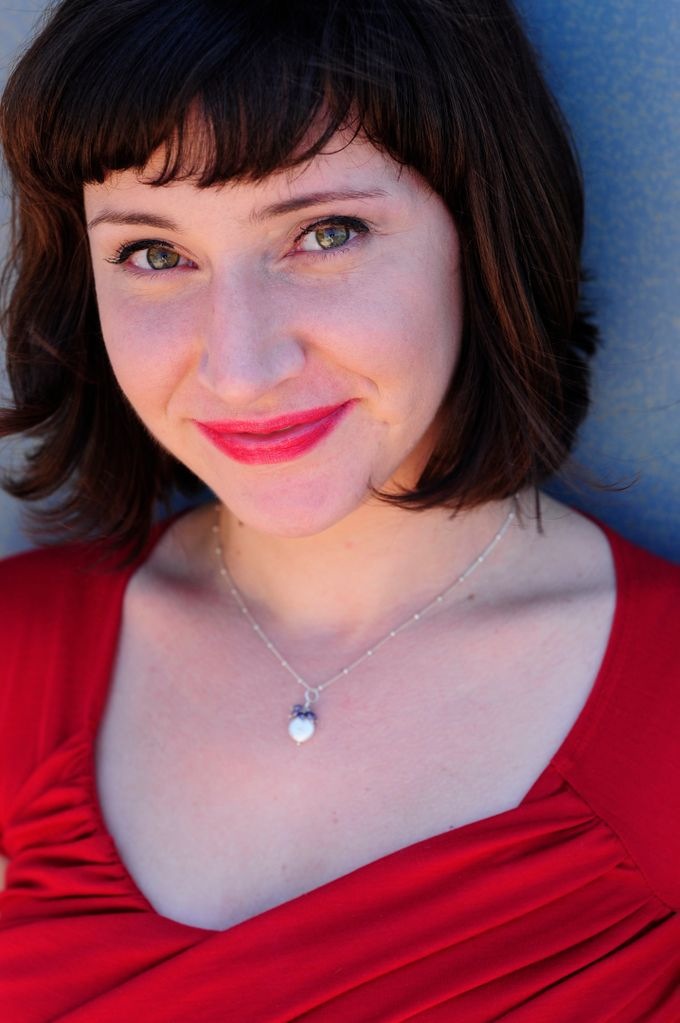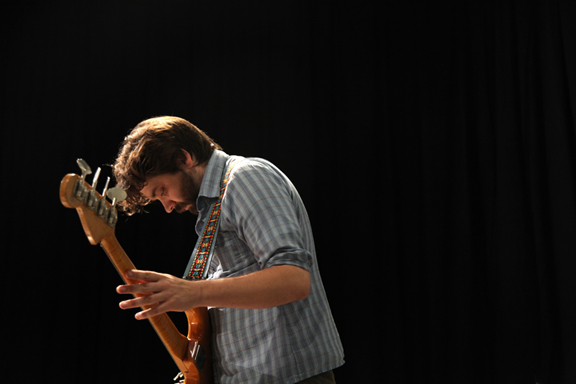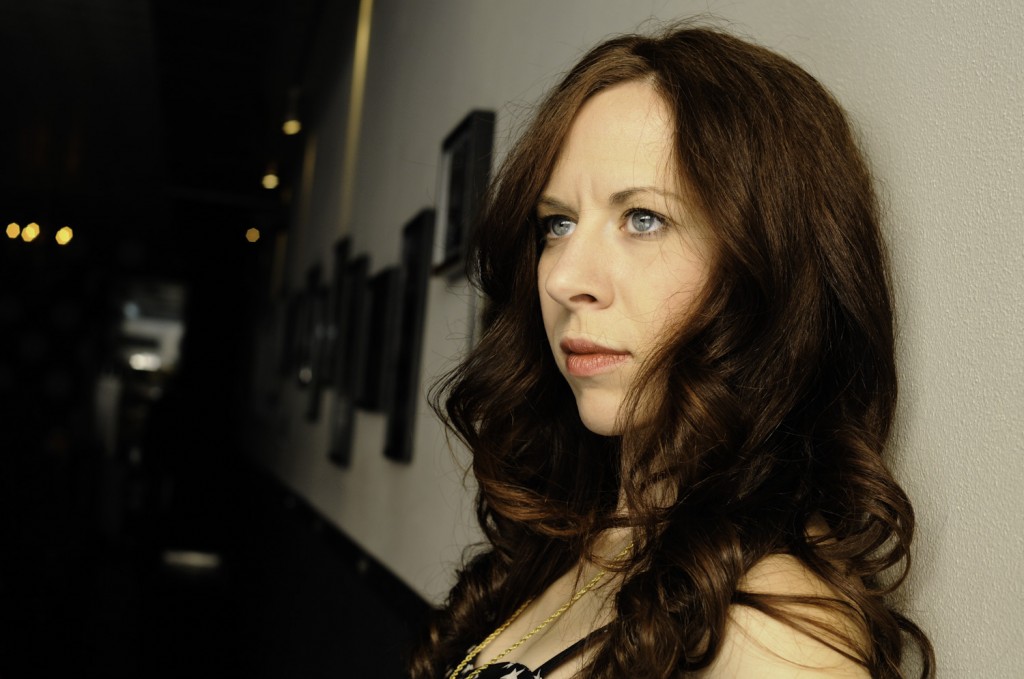One of the highlights of my semester is when I invite recent alumni from the Yale School of Music to speak to our students about how they created their career success. My students are consistently impressed and amazed that musicians who are a mere 5-8 years ahead of them are already successfully wending their way through the world of music. This semester’s panel was no exception:
Violinist and Co-Founder of The DeCoda Ensemble. A specialist in both new and early music across the stylistic spectrum on both violin and viola, Owen is the co-founder of Decoda, New York City’s trailblazing society of virtuoso chamber musicians, arts advocates, and educators, comprised of alumni of the Ensemble ACJW (a joint venture of Carnegie Hall, the Juilliard School and the Weill Music Institute in partnership with the New York City Department of Education) which Owen attended after graduating from Yale. Through DeCoda, Owen prides himself on performing the highest quality of music with equal attention to community outreach and advocacy, thus creating a new model of how a chamber music ensemble can perform and interact with audiences.
A versatile soprano who embraces both early and contemporary music. Mellissa enjoys an international performance career that spans concert halls and rock venues and collaborates with contemporary composers to perform new music in a wide range of styles She is equally at home with Mozart, Handel, and baroque opera, as well as her role as lead vocalist of Newspeak, an amplified alt-classical band, and for her work with Missy Mazzoli’s Victoire. She has worked with today’s leading composers including Julia Wolfe, Michael Gordon, David Lang, Steve Reich, David T. Little, Missy Mazzoli, Ted Hearne, and Frederick Rzewski.
James is a multi-faceted musician and instrumentalist who performs on classical and rock guitar, banjo, mandolin and incorporates his classical training, along with a healthy dose of improvisation, theatrics, and experimentation. A familiar face on the New York scene, James also tours widely throughout the world and has collaborated with a wide-range of artists and composers, including John Zorn, David Lang and Michael Gordon. James is also a founding member and director of Dither, an electric guitar quartet known for precision playing and creative programming. He has served on the faculty of Princeton University and he has been a guest artist at universities across the country.
A prolific composer whose works are widely performed all over the world by noted orchestras and ensembles including the Kronos Quartet, eighth blackbird, the American Composers Orchestra, New York City Opera, the Minnesota Orchestra, Missy collaborates with a wide range of artists and also performs with Victoire, the band that she founded. Upcoming projects include a commission from Carnegie Hall for a new work for Victoire, Wilco drummer/percussionist Glenn Kotche and vocalists Mellissa Hughes, Martha Cluver and Virginia Warnken, as well as premieres of newly commissioned works for the Los Angeles Philharmonic, the Young People’s Chorus of New York City, and pianist Emanuel Ax. Missy is on the Music Composition Faculty of the Mannes College.
All four of these musicians passionate about what they do, they are optimistic and look for opportunities to share their unique way of making music with today’s audiences, and they work hard and are committed to making things happen. And the consequence is that they are creating their own success.
Here is a summary of their advice for today’s emerging musicians.
Starting Out
Our four panelists belong to the first generation to live in a DIY world where it is up to you to create your opportunities. As Missy observed:
“It’s fine to be at the bottom. As the first DIY generation, you have to create it. If you are at the bottom of the economy and you create your own opportunities, it does not matter if the mainstream economy falls through. You start somewhere and build it up.”
Our panelists shared how they found opportunities to create their kind of music while still at Yale. Mellissa, who attended Yale’s Institute for Sacred Music, the early music program at Yale, realized early on how much she loved working with composers so she sought out collaborations with composers, including Missy, while at Yale. She described working with composers as her “calling,” upon which she has built the foundation of her career. Today, she collaborates widely with composers who write music for her and showcase her beautiful and incredibly versatile voice.
As an undergraduate at Yale, Owen’s passion for chamber music was initially a side line activity which he pursued for love and for fun. He eventually chose to pursue his Master of Music degree at Yale and to look for ways to share his “anachronistic” ideas about music. Owen defined success as “versatility and being musically open to lots of influences and skills”, all the while guided by his “true north” of chamber music and leadership in ensembles, with offshoots into early music. While at Yale, Owen created performances at unusual venues including a midnight performance of Pierrot Lunaire at one of Yale’s residential colleges because the original venue had fallen through.Owen was able to parlay that event into a success by convincing a lot of other people to join in the fun. He also advised our students to “pretend that you are a group”, a concept that he learned when he and a group of friends applied for and were awarded a grant from the School of Music to tour Germany. His advice was to “Fake it til you make it” and not to ask for permission but to beg for forgiveness. Owen told us to be convincing and passionate as you break the rules, to create something meaningful and to advocate for music. He credits Yale with teaching him to communicate about music succinctly and clearly to people who did not get it.
Missy sought out performers (and not other composers) at Yale for whom she wrote a lot of music. Moreover, she organized her first concert at a local New Haven bar where she programmed her own work, along with work by Phillip Glass and a dose of video. Being in school gave her the freedom to experiment because “there was not much room to fail.” And James honed his craft of classical guitar engrafted onto his foundation in rock music, meeting a lot of other people, including Missy and Mellissa. His first experience with a contemporary chamber quartet was a piece that Missy wrote for him, Mellissa and another friend and he relished the experience.
Making Your Own Opportunities
The same spirit of creating opportunities also permeated the early years of their careers, by slowly building up a reputation, establishing relationships through collaborations and leveraging success to get to the next level. All four of our artists went straight to New York after graduation. While their paths differed, they shared a passion for what they did and they experimented with various ways of connecting their music with their audiences.
James moved to New York where he sought out collaborators from Yale and from his summer experience at the Bang on a Can festival. He also expanded his network in those early years and is still working with many of the same people Yes, he had a series of low-level “soul-sucking” jobs but he continued to pursue his dream. He aptly summed up his attitude as follows:
“I find myself looking for opportunities and creating those opportunities and being self-motivated to make it happen.”
James urged students to approach people whom you want to meet, but making sure that it is the right time with the right touch. For example, he wanted to meet John Zorn so he emailed the composer at a point when he had been in New York for 5 years and had a lot of gigs to ask if he could program some of Zorn’s works at a concert. Thus, James had something to offer Zorn and it was a win/win for both. The two now collaborate frequently. James summed up his advice on creating opportunities as follows:
“Composers to performers: I have a gig. Performers to composers: Have a gig!”
Owen moved to New York where he became a Fellow at the Ensemble ACJW Academy, a vehicle for virtuoso performers who were equally passionate about bringing music into new communities. This experience galvanized him and his fellow alumni of the Academy who decided to develop the model and take it to the next level. Owen’s advice was to create your own niche based on what you do best and who you are. He also shared one of Thelonius Monk’s tips on how to make it as a musician.
“Don’t hussle for a gig. Be good and be on the scene.”
Missy also came to New York after graduation, with a different path ahead of her. Even though she was told that composers were “supposed” to get a Ph.D and teach, she decided that her education was over after Yale. She arrived in New York without a plan but was determined to put herself in front of audiences and see if she could make it work. She felt that it was fine to be at the bottom and emphasized that as part of the first DIY generation, you have to create your own opportunities, even if you do not know where it is going. She cycled through a series of day jobs and soon joined the MATA Festival where she worked closely with Philip Glass and met a lot of composers and also learned how to fundraise.
She also wanted a vehicle for her music since no one knew who she was, which led her to create her all-female band, Victoire, comprised of high-quality musicians for whom she could write her kind of music. Missy’s advice was to work hard, create great material, nurture your relationships and always have a project ready to go and be in a position to move things forward. Missy told us how her upcoming commission for Carnegie Hall came about. It grew out of a project in 2008 when she worked with eighth blackbird and Wilco. Moreover, Missy had written a piece for the Ensemble ACJW because of the group’s unusual instrumentation, through which she met Jeremy Geffen at Carnegie Hall and built up a relationship with him. And she had a project in the works which made it easy for her to deliver a comission on time. Missy’s advice is to
“Figure out who are the decision-makers. Who does the programming at Miller Theater? at Lincoln Center?”
All four of our artists stressed the importance of creating quality relationships, expanding your network and working hard (a message that resonated powerfully for my students!). James said that talent is one thing but “I am an incredibly hard worker. There are days when I all I do is send out email.” James advised our students to put themselves out there in the world and to book a solo recital, market heavily, meet a lot of people and stay in touch with them.
Owen told us that DeCoda involves a lot of travel and hard work. It is about creating great relationships and continuing to excel at what you do. We heard the same advice from Mellissa and Missy about working hard to network and to create and nurture connections.
Creating Successful Ensembles
One of the fascinating aspects of this panel was that 3 of the 4 panelists have founded their own ensembles. They feel that today’s audiences want to experience something special and that live music continues to be important. And they are all committed to writing and performing high-quality music, whether in a classical or a rock setting and no matter who is in the audience, and trusting their audiences to go along with their vision.
James Moore and Dither
Because he enjoyed collaborating with other guitarists, James founded his rock quartet, Dither, which clicked right away because the group was versatile and ” the music is really cool!”, as well as being very high quality. Moreover, there was already an existing repertoire for electric guitar quartets and people are familiar with the sound of the electric guitar. In addition, his friends whom he met in his early days in New York wrote music for the group. James commented that:
“We let people know about us. We made our own gigs. We grew organically.
And of equal importance is the fact that James and another member of Dither work constantly on the administrative and business side of the ensemble.
Owen Dalby and Decoda
Owen explained that after the Academy, he and his colleagues had a lot of materials, training and experience in a new model of the chamber music ensemble engaged with the community. They wanted to continue working together, as well as take the Academy to the next level, so they formed a group now called Decoda premised on the idea of performing music, both old and new, together with education and outreach, all done with equal seriousness and quality.
Membership was not by audition but rather premised on an entrepreneurial “opt-in policy” whereby if you brought a project to the group and that project met certain criteria, you became a member of the group.
They had lots of work right away both because Carnegie Hall referred many projects to the group and because they had established close relationships with a number of communities who believed in them. To date, the group has had residencies in the US as well as Mexico, Denmark, Iceland, UK, Abu Dhabi, India and, Spain. The group is now establishing its home base in New York. Finally, because of the group’s unusual instrumentation (28 members that include 3 bassoons and only 2 violins!), they commissioned a lot of work from today’s composers, including Missy.
Missy Mazzoli and Victoire
Missy told us that when she arrived in New York, she needed a vehicle for her music since no one knew who she was. She had a gig at The Stone and needed to find some high quality performers to showcase her music. That led us to create Victoire which she decided to call a “band” since it was a lot easier for people to relate to that term. In addition to showcasing her work, creating Victoire had a lot of other advantages:
- It enabled Missy to perform on keyboard she is also a trained pianists and enjoys performing.
- She wanted to find the best players possible and write music for them.
- She wanted to create albums and CDs and the group provided a consistent instrumentation.
- Writing for and playing with the group is so much fun because they are awesome people!
As Missy explained,
“We are virtuosic performers. I have moved my group along and write more complicated music now.”
Engaging Today’s Audiences
Our panelists provided helpful insights into what today’s audiences are looking for.
Mellissa, who appears with Victoire as well as many other contemporary ensembles, enjoys performing cross-genre music as well as in different venues because it taps into different audiences. She feels that audiences value live performance and that they come to watch a performance so that it is important to include visual elements. Her advice is to “put on a good show” where you are “physically engaged. Show the passion. People love that.”
Missy feels that having singers on the stage brings a “physicality” that audiences love because “it makes the music more inviting”. She believes that you can attract people to live music performances by bringing them something familiar and then surprising them. Missy also believes that the public likes to be challenged.
Owen echoed the importance of putting on a good show. He feels that music should be a community experience and that performers and programmers should “increase the value proposition of a concert”. One way is to make music a “first-person experience” by getting the audience directly involved in the music-making. For example, Decoda worked with musicians from the Berklee School of Music to create a version of “In C” on an iPad with a visual response so that audience members could get involved.
Finally, our panelists emphasized the importance of being authentic and true to yourself.
As James stated:
“It is really important to be who you are. Make your own identity. Create something with your own identity and don’t try to fit into these prescribed worlds. I play jazz, concert music and in rock clubs opening for a cool group.”
Owen nicely summed up the sentiments of all four of our guests:
“Don’t overpromise. Be who you are. Let the music speak for itself. The quality of the product is key. Be open-minded about the kinds of places and types of people. You never know. It is important to get rid of pre conceived notions. Step out of our conservative training. Give people something that they can only get from live music.”
For me personally, I feel a tremendous sense of optimism when I hear from four brilliant, talented and engaged musicians on how they are engaging with the world through music. I look forward to seeing how their journeys unfold!

 Owen Dalby
Owen Dalby Mellissa Hughes
Mellissa Hughes James Moore
James Moore Missy Mazzoli
Missy Mazzoli